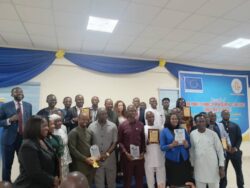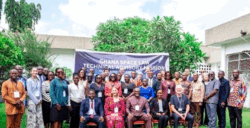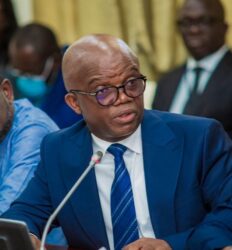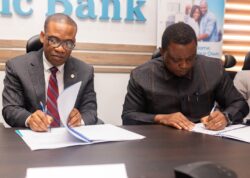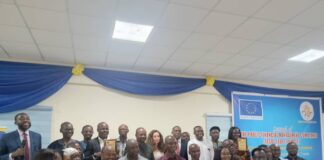Considering the effect the pandemic has had on businesses and individuals, it would have been more prudent and efficient for government to have adopted other bolder measures such as revision of tax exemptions and utilizing property rates to rake in revenue than to increase taxes in the 2021 budget, senior lecturer at the University of Ghana, Dr. Patrick Assuming, has said in an interview with the B&FT.
The budget statement presented by Minister of Parliamentary Affairs, Osei Kyei Mensah Bonsu, on Friday introduced new taxes such as the COVID-19 Health Levy which will see a one percentage point increase in the National Health Insurance Levy and a one percentage point increase in the VAT Flat Rate to support expenditures related to COVID-19.
In addition to this, government said it is proposing a Sanitation and Pollution Levy (SPL) of 10 pesewas on the price per litre of petrol/diesel under the Energy Sector Levies Act (ESLA); and a further Energy Sector Recovery Levy of 20 pesewas per litre on petrol/diesel under the ESLA as a means of finding additional resources to cover the excess capacity charges that have resulted from the Power Purchase Agreements (PPAs).
Despite the fix – limited options available for government to immediately raise revenue– in which government is, Dr. Assuming noted that introducing new taxes and adjusting some existing ones at this critical moment where businesses and households are still reeling under the pressure of the pandemic are not good options.
In his opinion, there exist better options in the form or broadening the tax net, revising the many tax exemptions and taking advantage of digitisation in raking revenue from property taxes than to have introduced new taxes or revised existing ones.
“We are in a very difficult situation because as a country we have not really made the hard choices that we have to make. We have complained about the fact that the tax base is narrow and if we had taken advantage of the time the economy was growing to broaden the base, it would have given us more breathing space now that we are in crisis.
I think the type of taxes we have raised is probably not the right taxes to raise. The country loses so much through tax exemptions and I wonder why we haven’t taken bold steps with that even though the President expressed worry about it in one of his State of the Nation Addresses. This is something that came up even while we were still on the IMF programme and the IMF has emphasised that it is one of the areas we can still make more revenue.
Then, another area we could have moved to raise revenue is the property tax. During the President’s speech last Tuesday, he indicated how government is planning to integrate digitisation in certain areas of the economy. It means over the medium term, that is the strategy for raising more revenue, and so I would have wished to hear more in the budget about how this can be used to raise revenue from property tax,” he said.
Further commenting on the impact the introduction of the new taxes will have on the economy, Dr. Assuming said businesses and households must tighten their belts for a difficult year ahead, as the hardships they are already facing will be compounded with the new taxes.
“It simply means that harder times are coming. All these new taxes, particularly the one on fuel prices, will affect a wide section of society. The disappointing thing is that we all acknowledge these are difficult times for Ghanaians and the budget even highlighted how people have had their salaries reduced or lost their jobs. So to compound it with additional taxes is disappointing,” he said.





